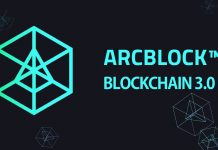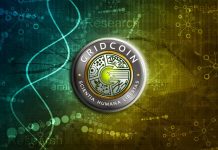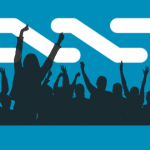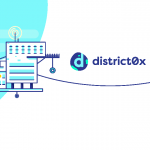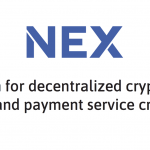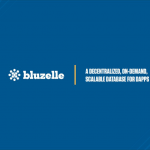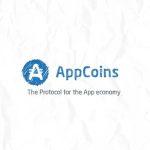FoldingCoin is a cryptocurrency that you can earn by donating your computing power towards projects that aim to cure disease. If you check out their website they explain that FoldingCoin is a partnership with Stanford’s Folding@Home program, a distributed computing project that asks volunteers around the world to download software on their computers. Once installed, it uses idle processing power to simulate protein folding in the body.
Protein folding is central to healthy biological processes. Cancer and Alzheimer’s (among others) are well known medical conditions that arise when proteins misfold. Scientists and medical researchers alike investigate why the proteins fail to fold properly and how medicines can be designed to correct the process. Stanford provides the data output from the FAH program to these researchers in order to help understand how to solve the misfold issues.
This project has been going on since the early 2000’s, and as a result of everyone’s contributions, there are now over 100 scientific papers written using the data that has come from this global project. Initially, the volunteers were just doing so out of the goodness of their hearts. The crypto revolution has changed that. Now there is an easy way to reward folders with tokens built on the Counterparty platform.
The project started with distributing its own token FLDC, but they have developed a system in which any project using a Counterparty token can distribute promotions on their platform (or permanently).
FEATURES.
Counterparty.
FoldingCoin does not have its own blockchain, instead it is built on the Counterparty protocol. Counterparty allows users to create their own assets, along with a complete suite of additional financial tools, within the Bitcoin blockchain. User created assets are often generically referred to as “tokens” or simply “assets”.
Using Counterparty means that, once issued, Folding Coins are secured by the Bitcoin blockchain and its many miners – which most people agree is the most secure cryptocurrency network. It also means that they can be easily traded for other cryptocurrencies using Counterparty’s decentralized exchange.
The Counterparty protocol is also used to lock up token distribution ensuring that even the developers of FoldingCoin can’t introduce more FLDC into the market.
Merged Folding.
The FoldingCoin platform has been designed to allow other Counterparty (XCP based) tokens to secure their distribution using the FoldingCoin system. This means that ‘miners’ can earn additional coins on top of the regular FoldingCoin rewards for their participation.
The following are some of the projects that are distributing or have distributed on the platform:
- FoldingCoin - FLDC is the original token on the FoldingCoin platform. This token has a half life distribution similar to BTC and will be distributed on the platform forever.
- Spells of Genesis - Spells of Genesis (SoG) is a trading card/arcade game, which will integrate bitcoin and blockchain technology in its game economy as well as its storyline.
- SCOTCOIN - The Scotcoin Project was created with the intent to serve as the Scottish citizens money supply to be the first official decentralized currency of a country.
- POWcoin - Powcoin is a token that strives to be the currency used for comic books. 1% of POW will be exchangeable for no less than 1 ounce of silver
- OctoParty - Octoparty is a token that is being revived since the original developers abandoned the original altcoin 888 or Octocoin.
- Pepe Cash - The Rare Pepe Foundation has build a brand new trading card platform (a future game is already under development also with a deck-building beta), based on the popular Pepe Meme.
Tokenly Bitsplit Distributor.
FoldingCoin Inc. uses the Bitsplit distributor created by Tokenly to distribute the tokens by simply uploading all the recipient addresses and total amount of tokens they are to receive in a CSV format. Then the distribution server automatically sends the allocated amount of the token to the address in which is in the same row as the amount.
TECHNICAL SPECIFICATIONS.
Algorithm: Stanford Folding.
Amount: 1,000,000,000 FLDC.
Daily pay-out: 500,000.
Coin halving: 1000 days.
Distribution: LTB distributor.
First Distribution: July 14 2014.
Fundraiser: 10,000,000 (10BTC).
Promotional funds: 100,000,000.
FOLDING COIN (FLDC) OVERVIEW.
Coincapmarket ranking: 235.
Current coin Value: $0.012284 (1.55%).
Market Cap: $6,445,045.
24hr volume: $145,865.
Circulating Supply: 524,682,737 FLDC.
Total Supply: 1,000,000,000 FLDC.
FoldingCoin is an asset issued on the Bitcoin blockchain using the Counterparty protocol. It was developed as both a way to use idle GPU and CPU hardware productively, and also to provide a boost to the Stanford University Folding@Home (FAH) network.
Supply and distribution.
No mining is required by FLDC. All tokens have already been created and are held in a distribution wallet http://www.blockscan.com/assetInfo.aspx?q=FLDC. FLDC is distributed on a schedule every four weeks, with the reward distribution halving each time. Once received, people can transfer FoldingCoin to others over bitcoin blockchain and Counterparty protocol.
Only 1 billion tokens will ever be created. This is a hard cap. The asset has been locked and there is no way for anyone to ever issue more of them. The FoldingCoin team has designated 100 million FLDC for development rewards. This will be paid to those who contribute necessary work and code to the project based on the project’s needs.
Wallets.
Exchanges.
- Counterwallet.Counterwallet is a decentralized exchange that requires no trust in a single party. All trades are done via the blockchain. The exchange is built inside your Counterwallet account.
- Bittrex.
- Poloniex.
Mining.
In order to mine FoldingCoin, one has to download FoldingCoin client over Folding@Home network and configure accordingly. Once the rig is set up, people can use their mining rig’s processing power on Work Units, which are basically protein folds sent to the client machine by the network. There are FoldingCoin mining groups, just like mining pools on the network which one can join and start cracking the Work Units. Every morning, the user’s wallet will be credited with Folding Coins proportional to the amount of work done the previous day by the participant. These credits can be sent to others or exchanged for other Counterparty based altcoins.
IN CLOSING.
Digital currency and blockchain technology has a lot more to offer than just money. It can also be part of a bigger picture, adhering to ethical and moral values and contribute to the society and human kind as well.
[currencyprice currency1=”FLDC” currency2=”usd,eur,btc”]
[currencygraph currency1=”FLDC” currency2=”usd”]



